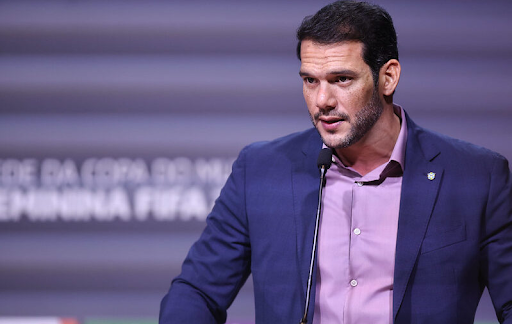
President Samir Xaud announced a measure to implement financial fair play in Brazilian football; clubs will be able to participate in the debate
The Brazilian Football Confederation (CBF) announced this Monday (9/6) the creation of a working group (WG) to create a proposal for the Regulation of the Financial Sustainability System (financial fair play).
According to the ordinance, the team will include representatives from the entity, clubs from Series A and B, state federations and independent technical consultants. Clubs and federations have until this Saturday to express their interest in participating in the working group. If the number of interested parties is high, the definition of the members will be made by the president of the WG – CBF vice-president Ricardo Gluck Paul – “based on criteria that ensure regional diversity, representation of different management models and balance between the various segments of national football”. “Today is an important day for Brazilian football. We are signing the ordinance that creates a working group to finally implement financial fair play, a long-standing demand from clubs that have been waiting for this practice for over 10 years,” declared CBF president Samir Xaud.
“In 90 days we will have a set of regulations ready, with clear rules to promote financial balance, transparency and sustainability in clubs. This is the new CBF, agile, open to dialogue and committed to resolving structural issues. Financial fair play is no longer a promise, it is an ongoing project and we will build it together,” he continued.
According to the ordinance, the working group has the following objectives:
Establish the concept and procedures for evaluation, monitoring and sanctioning based on audited accounting and financial information;
Propose a model for the gradual implementation of the obligations of the regulation, respecting regional differences and the specific financial situations of each club;
Recommend governance, transparency and accountability mechanisms;
Identify international best practices and promote benchmarking with similar systems from other entities;
Suggest a model of technical and educational support to clubs to adapt to the proposed standards.